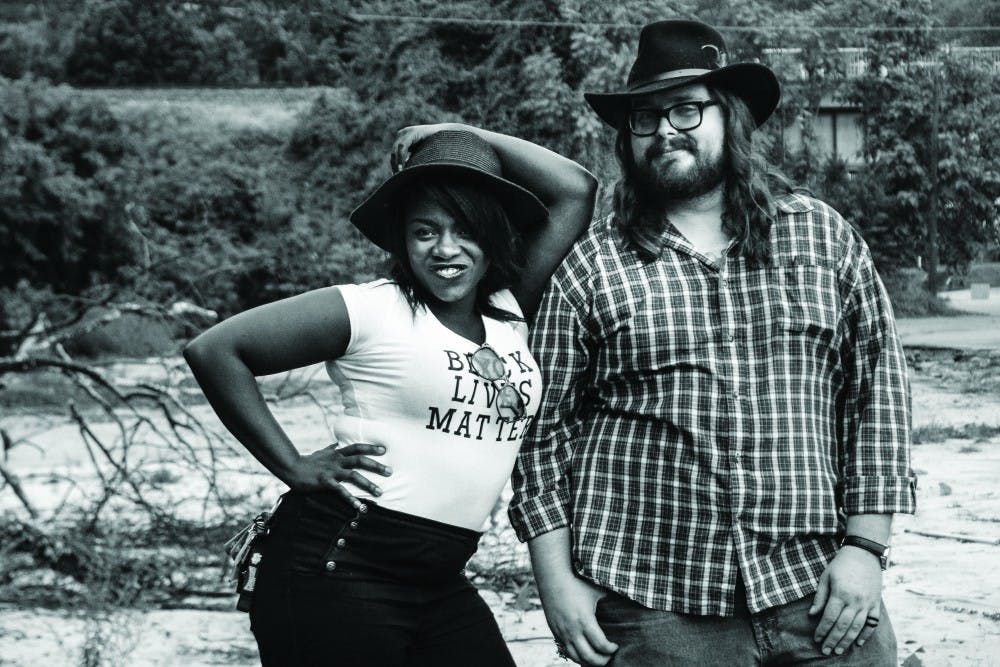The problem was, Debbie didn’t want to be a skank.
"I spent all of middle school making sure people didn't call me that," she says.
A jam-session-turned-audition, and she became the frontrunner of Joe “Buck” Roberts’ band, Debbie and the Skanks. She joined the band with Roberts on guitar and vocals, Brett “Hound Dog” Kent on bass and Adam “Ol’ Unk” Cox on drums. Deborah Adedokun says she got tricked, but she doesn’t regret this slippery beginning. Now, the band has a chemistry that melts into the crowd, a powerful stage presence and the sense of the old being made new again. It’s in the roots.
Roberts wanted the band to be female-fronted. Debbie had qualms about being a Skank because she was nervous about performing in front of the crowd. In the beginning, there were a lot of mistakes. She apologized for messing up during shows, but according to Roberts, the crowd never noticed. “We would just be like, 'Oh, she’s doing the chorus again. I guess we’ll do that.'”
And Adedokun sees the stage fright as part of the experience. “If we were about to play a set and I wasn’t all jittery and freaking out, I would be over it,” she says.
The band is working on recording an album that they want to press into vinyl, and they have a live-recorded album accessible through BandCamp. But the magic happens on stage.
To say a Debbie and the Skanks show is lively would be an understatement. They don’t play as often as they used to because bassist Kent moved to Asheville, but when they do, it’s one hell of a show. A big rock 'n' roll party. Adedokun uses the stage as an instrument in and of itself, jumping and stomping with the beat. Almost everyone is dancing. “When hurricane Deb hits the stage, you goin’ do it,” Roberts says.
Adedokun is obnoxious, in-your-face. “My partner over there in the blue T-shirt ain’t doing nothing over there. Clap your hands; It ain’t gonna hurt you,” she harped at one show in Charleston.
Having a female frontrunner wasn’t just luck of the draw. There’s a sense of politics in the act. For young girls coming to a Debbie and the Skanks show, Adedokun wants them to see the band as empowering. “I don’t like it to be any different than if Joe were the one singing, but I do like the idea that other girls will see it and say, ‘Oh, this is totally normal and awesome and fine.’”
For Roberts, it’s not just tokenization. He didn’t want Adedokun to be the lead singer for the sake of having a female-fronted band. “I don’t want having a black person or a female to be a novelty. Some people will see it as that, but others will see it as empowering,” he says. “And rock 'n' roll is about empowerment. It always has been.”
Roberts describes Debbie and the Skanks as good ole rock 'n' roll. Taking something old and making it new again. The music is gritty, obnoxious garage rock — The Stooges of Columbia. Roberts’ guitar riffs are unpolished and warped, yet melodic. Through this hard, jagged, upbeat percussion, Adedokun delivers powerful vocals about heartbreak and revenge.
Adedokun provides the soul on stage, but the words are all Roberts’. He’s taking disparate pieces of music, and putting them together. This, after all, is what love is.



